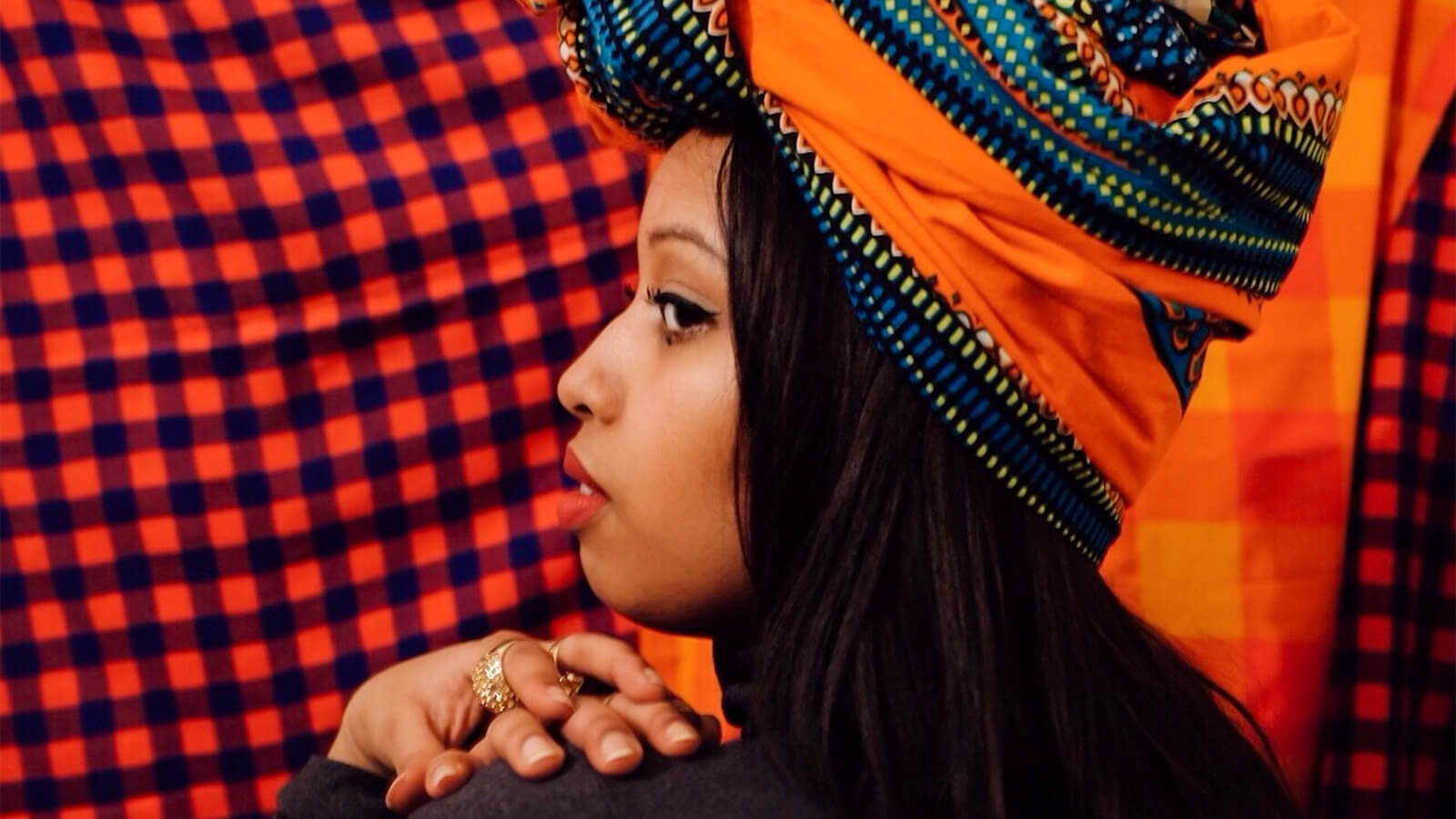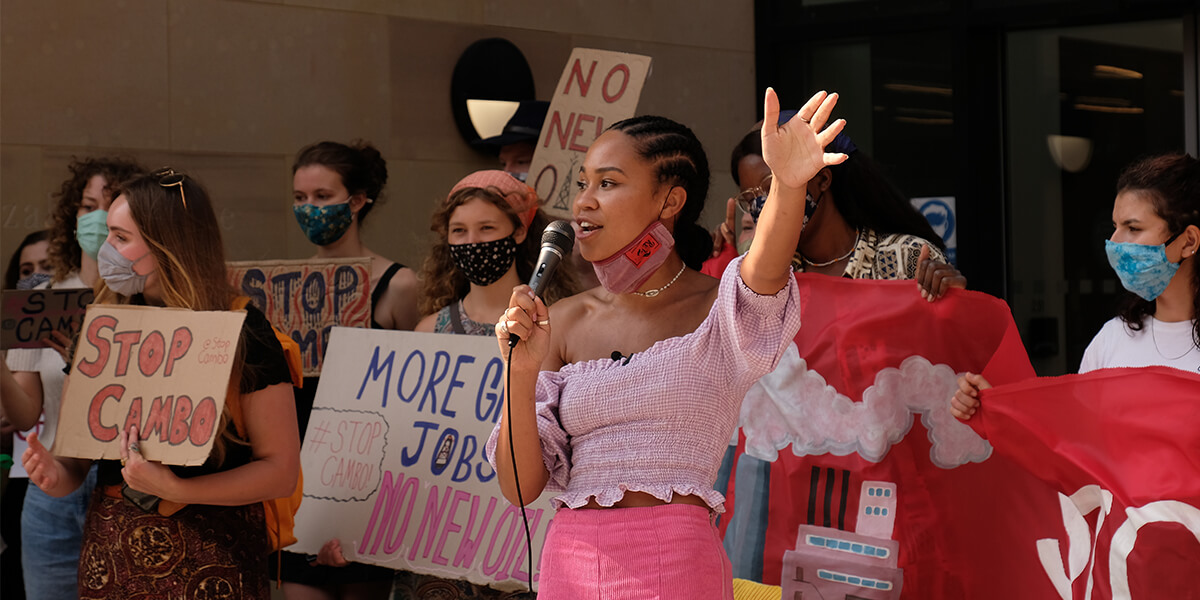Poet Warsan Shire On Her Responsibility As A Black Artist To ‘Bear Witness’ To Forgotten Stories
There are many things you may already know about British-Somali poet Warsan Shire. She was the first Young Poet Laureate for London, and the inaugural winner of the Brunel University African Poetry Prize. She famously collaborated with Beyoncé on her award-winning visual album Lemonade, and lent her words to her film Black Is King. And there are the things you may not know. She used to write her poems in the IKEA in Neasden, North-West London. She is fascinated by serial killers – particularly female ones – and is almost sexually attracted to glitter. “Even thinking about it, I get the biggest endorphin rush,” Shire says with a laugh, crossing her legs beneath her and tugging at the hem of her T-shirt, which has the face of James Baldwin emblazoned across it.
It’s a fitting sartorial choice, Baldwin being a man whose art is, in many ways, a precursor to that of 33-year-old Shire – the child of Somalian refugees, raised in Harlesden, North-West London and now residing in LA with her husband and two young children. Like Baldwin, she voices the Black experience. “I can’t just write purely about me. My whole way of making sense of life is, ‘So I’m going through a difficult time. Who else is going through a difficult time?’” She utilises poetry not only as a way of navigating her own trauma, but that of others. The poems in her debut collection Bless The Daughter Raised By A Voice In Her Head (out now) have narrators who are both personal and vague, everyone and no one. “I always look at the pain of others,” she says. “I think it’s because I was raised constantly being told it could be so much worse – look at your cousin back home in Somalia who has nothing.”
One of the most enduring examples of her work is Home – a blisteringly impactful poem about the refugee experience. Her lines No one leaves home/unless home is the mouth of a shark are now being used to describe the war in Ukraine, a horrific crisis which has nonetheless highlighted the differences in how some refugees are viewed compared to others. “No matter where you are, what country or what era, the darkest people are treated the worst,” Shire says, both exhausted and fascinated by this awful truism: “Whatever is going on, people always seem to make time for racism.”
She says she feels a responsibility as a Black artist, to ‘bear witness’ to stories that are forgotten or overshadowed. Her work is part of the Somali poetic tradition of gabay and her narratives swim with the richness of Somalia – the pain, yes, but also the joys. “What I struggled with growing up was feeling like nobody cared, because nobody knew who we really were. People always think how heavy that responsibility to tell these stories can be, but it can also be an honour, it can also be light.”
After years of poetic success, it is perhaps odd she has waited so long to release her first full collection but, she says, it is “losing integrity” that keeps her up at night. “After Lemonade I had all these people being like, ‘Your 15 minutes are now.’ But I don’t care about being famous. I wanted to take my time.” In LA, Shire lives a quiet existence with her young family; writing on the “grey rainy days that remind me of England” and worrying that her sons will have American accents. Shire is currently penning her second volume, but is in no rush. Instead, she looks to the long careers of women such as Louise Bourgeois, as inspiration: “I feel I will probably write my best work when I’m 80.”
If Bless The Daughter was “written for my child self” her next book will speak to her experience of motherhood, something that has allowed her to “finally see myself clearly”. One of these recent revelations is that she has wasted too much time thinking she was ugly, an unsettling feeling that floods her poems. Though fame was never what Shire wanted, recent success has given her something much more valuable: self-esteem. “At times, I will catch myself in the mirror and be like, ‘Not only am I not ugly, I really like myself.’ I see a light behind my eyes that I like, and that makes me sad. Because for so many years I didn’t recognise it.” Her grin widens and her eyes brim a little: “I do now.”
Marie-Claire Chappet is a London-based arts and culture journalist and contributing editor at Harper’s Bazaar




